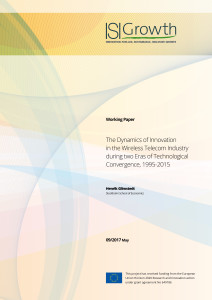This article aims at testing whether firm growth processes differ across countries characterized by different financial systems and varieties of capitalism, as well as across stock market segments with different listing requirements and information standards. We estimate Gibrat regressions of firm growth through dynamic panel methods on datasets of manufacturing firms listed on the stock exchanges in two polar types of capitalism, namely Japan and the United Kingdom, along with statistics on Germany, France, and Sweden. The difference in growth patterns between the main segment, i.e. the market dedicated to bigger and mature companies, and the junior segment, i.e. the market dedicated to smaller and younger companies, is wider in the London stock market than in Japan. The main segment firms are closer to satisfy Gibrat’s Law, which is violated on the junior market, validating the evidence of long-run regularity for mature firms and the influence of learning processes (Lotti et al., 2009). The absence of correlation with age on the Japanese market for both segments reflects the institutional design of the junior market and might illustrate the role of cumulative learning and of voice mechanisms in credit-based capitalism. These results hold once we consider different size proxies (employees, value added, total assets, net sales) and when we control for the availability of internal and external financial resources. In particular, profitability is not a driver of firm growth even in a market-based system as the UK, casting doubts on the effectiveness of market selection dynamics. Labor productivity and firm-level capitalization are less persistent as compared to the firm size variables, the latter reflecting firm riskiness.
Firm Growth and Stock Market Regulation in Different Financial Systems
Caroline Granier
Sant’Anna School of Advanced Studies
Valérie Revest
Université Lyon 2, Triangle, Sant’Anna School of Advanced Studies
Alessandro Sapio
Parthenope University of Naples, Sant’Anna School of Advanced Studies

